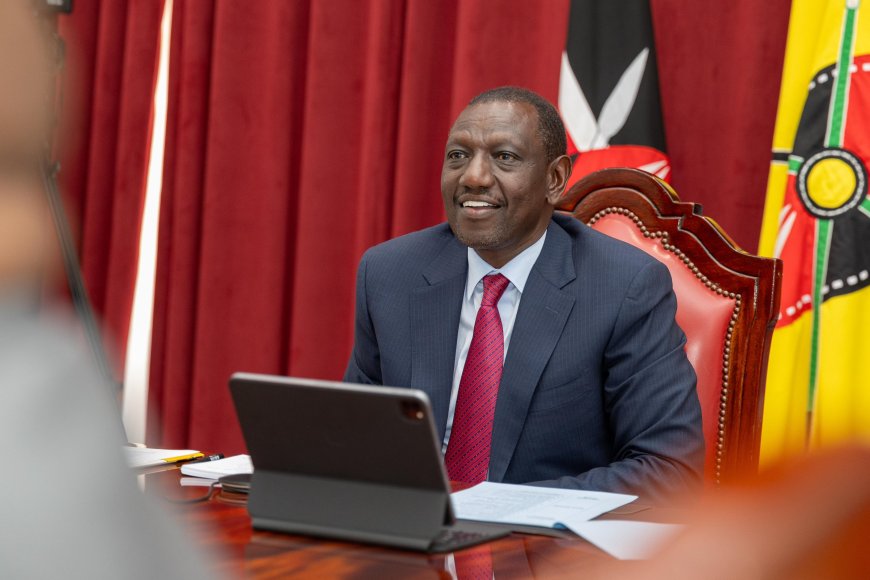Govt Issues Order To All Social Media Owners, Including X, Facebook
The directive to have the companies set up offices in the country is to ensure that the government achieves accountability from the platforms, making them directly answerable for their usage.

The government has compelled the owners of social media companies, whose platforms are accessible to Kenyans, to set up offices in the country.
This directive, as announced by the Ministry of Interior, comes after months of complaints from senior government officials and a section of Kenyans about the misuse of social media, particularly among Kenyan youth.
The directive to have the companies set up offices in the country is to ensure that the government achieves accountability from the platforms, making them directly answerable for their usage.
"To ensure responsibility and accountability in the face of rising disinformation, social media manipulation, and online abuse, all social media organizations operating in the country must establish a physical presence within our jurisdiction," the statement read in part.

Interior PS Raymond Omollo during a meeting with telecommunications companies and social media platform representatives on January 16, 2025. /MINISTRY OF INTERIOR
The popular platforms targeted include Meta, which is owned by Mark Zuckerberg and has platforms such as Facebook (with 3.07 billion users globally) and Instagram (2.4 billion users globally), as well as X (600 million users globally) which is owned by American billionaire Elon Musk.
The order also affects TikTok, boasting almost 1.6 billion active users each month on its platform, which sits at position five of the world's most monthly active users following Facebook, YouTube, WhatsApp & Instagram. Other popular social media apps targeted include YouTube, Snapchat, Linkedin, Pinterest, and Snapchat.
This directive was emphasized on Thursday, January 16 by the Principal Secretary for Internal Security Dr. Raymond Omollo during a meeting with telecommunications companies and social media platform representatives.
"The increasing misuse of social media, including harassment, hate speech and incitement to violence, necessitates immediate and decisive measures. Strict compliance with this requirement is expected with telecommunications providers and platform owners required to take stronger action against criminal activities online," added the statement.
This move is however likely to attract heated opposition from multiple stakeholders, including civil society organisations, as well as Kenyans as a whole, given that this directive would bring the Kenyan government closer to regulating whatever content is posted on these platforms every minute, endangering the freedom of speech.
Article 33 of the Kenyan Constitution explains this clearly. Section 1 stipulates that every person has the right to freedom of expression, which includes freedom to seek, receive or impart information or ideas; freedom of artistic creativity; and academic freedom and freedom of scientific research.
However, according to Section 2, the right to freedom of expression does not extend to propaganda for war; incitement to violence; hate speech; or advocacy of hatred that constitutes ethnic incitement, vilification of others or incitement to cause harm; or is based on any ground of discrimination specified or contemplated in Article 27 (4).
Section 3 goes on to explain that in the exercise of the right to freedom of expression, every person shall respect the rights and reputation of others.
The social media companies are thus expected to issue rejoinders on this recent government directive. Musk, the owner of X, has been known for his outspoken views on freedom of speech and social media usage, and the transformation of the platform from Twitter to a haven of free speech is a testament of his views.
Meta CEO Mark Zuckerberg made a headline-grabbing announcement on January 10, stating that in line with X's stance on freedom of speech, his company would be removing key restrictions and controls previously imposed on users. Among the notable changes was the elimination of fact-checkers.
This recent government directive comes hours after a Kenyan went to sue X (formerly Twitter), accusing the Elon Musk-owned firm of allowing the publication and access by users to content bordering on hate speech, incitement to violence and promoting pornography, among other accusations.
Not long ago, Interior Cabinet Secretary (CS) Kipchumba Murkomen pledged to restore order on social media platforms by targeting individuals misusing these spaces to demean public leaders and spread harmful content. Speaking at a prayer service for police officers at the National Police College, Embakasi A Campus, Murkomen warned that the government will arrest and prosecute those violating Kenya’s cybercrime laws.
"We will not allow our young people to share pictures of their leaders in coffins online," Murkomen stated firmly on January 12. "Our cybercrime law is very clear. We will follow them there. There is a need to maintain law and order online."







